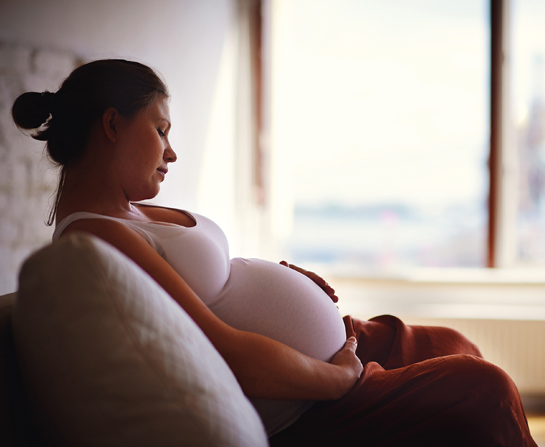In Light of Older Mums
May 7, 2022 Return

Dr Kiren Sidhu Consultant Obstetrician and Gynaecologist, Pantai Hospital Kuala Lumpur
John Lennon once said, “Life is what happens while you are busy making other plans.” This can be true for most of us. We juggle the need to have a career that provides both fulfilment and enough income to support ourselves as well as seeking that elusive life-work balance. For many women, this tends to cause them entering motherhood at an older age compared to their own mothers and grandmothers.
This is a phenomenon widely noted and even studied in developed countries such as the USA, UK, Japan and even Singapore. While we do not have any statistics to show us how prevalent this phenomenon is in Malaysia, there are strong indications that Malaysian women, in general, are having their first baby at an older age.
Dr Kiren Sidhu, a consultant obstetrician and gynaecologist, tells us, “If I see 20 pregnant women a day in my clinic, easily about 15 of them would be above the age of 30 and having their first baby, and of these 15, about 8 would be above 35 years old.” She adds that it is not uncommon these days for women to defer childbearing to an age when they are more comfortable.
This phenomenon is not without a few risks. But in order to understand those risks, let us first take a look at the impact of one’s age on the development of our egg and sperm cells.
The fertility process

In the female reproductive system, the egg cells are formed in the ovaries. Each ovary is made up of a very large number of follicles. Egg cells form and develop within these follicles, and one fully mature egg would be produced each month.
Therefore, a woman’s fertility rate is closely linked to the number of follicles present in her ovaries. Unfortunately, studies have shown that, with age, the number of follicles present actually decreases.
Also, the genetic materials present in the egg cells become increasingly flawed the further the woman ages.
“The older you are, the greater are the chances that the baby inherits these flawed genetic materials, significantly increasing the risk of the baby being born with chromosomal abnormalities (Down’s syndrome, Edward’s syndrome, Patau syndrome and such),” says Dr Kiren. She shares the following estimated risk of Down’s syndrome, which increases with maternal age:
Maternal age | Risk of Down’s syndrome |
|---|---|
25 | 1 in 1,300 |
30 | 1 in 850 |
35 | 1 in 340 |
40 | 1 in 100 |
There is also an increased risk of ectopic pregnancy (the baby developing in the fallopian tube instead of the uterine wall, a state that can endanger the mother’s life) and spontaneous abortion. Women who become mothers over the age of 40 also face a higher risk of longer labour, awkward positioning of their baby during birth and foetal distress.
It’s not just a woman’s dilemma
Dr Kiren points out that men also face the problem of increasingly flawed genetic material duplication in their sperm cells as they grow older. The older the father is, the higher the risk of autism, epilepsy, learning difficulties, schizophrenia and such.
A complicated dilemma
Unfortunately, there is no easy solution for someone who wants to have a baby at an earlier age but could not due to reasons related to high cost of living or career. Change could come, says Dr Kiren, only when there is a work culture that allows flexible hours, longer maternity leave, and better work-life balance.
In the meantime, here are some options to consider if you are most likely to have children only after 30.
- Devise a personal life plan encompassing your career and lifelong goals – including having a family at an age you are comfortable with (ideally, before 40) – and use it as a guide to chart the course of your life.
- Live a healthy lifestyle. Dr Kiren points out that daily balanced meals and regular exercise can boost fertility and help cut down the risk of medical conditions such as diabetes.
- Freeze until needed. Egg cells and sperm can be cryogenically frozen at a fertility centre when one is between 20 to 30 years old, to be used at an older age when one is ready to have a child. The cost can be high for some people, however.
If you like this article, do subscribe here.
